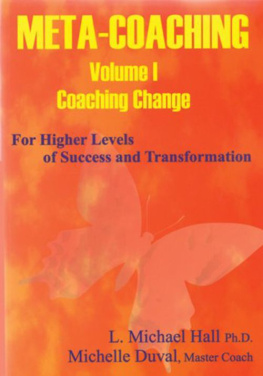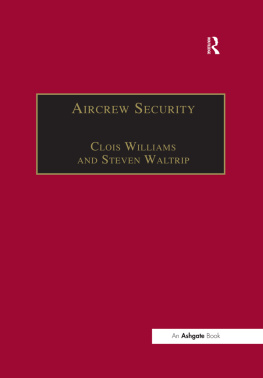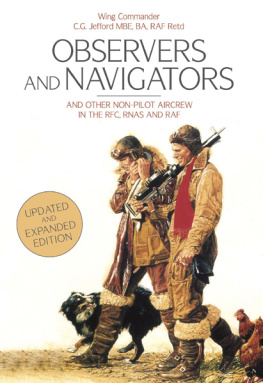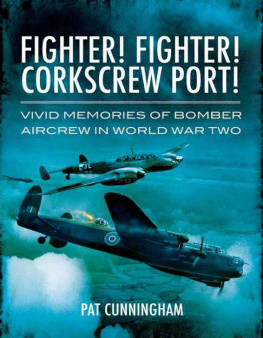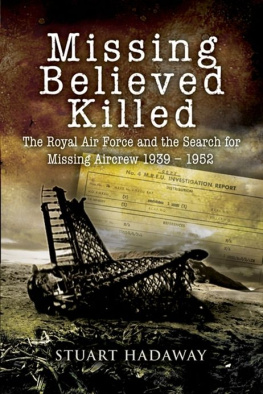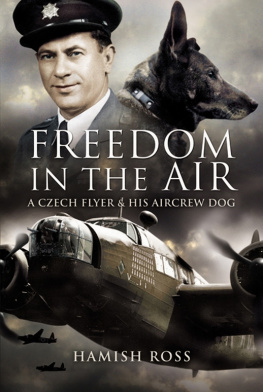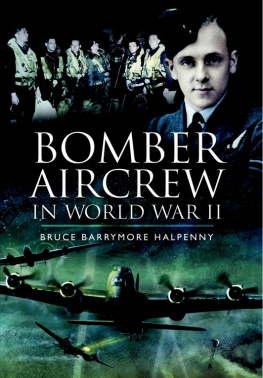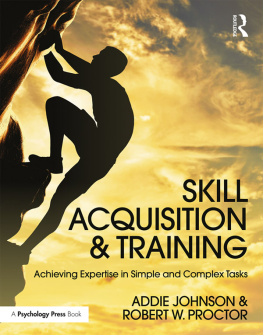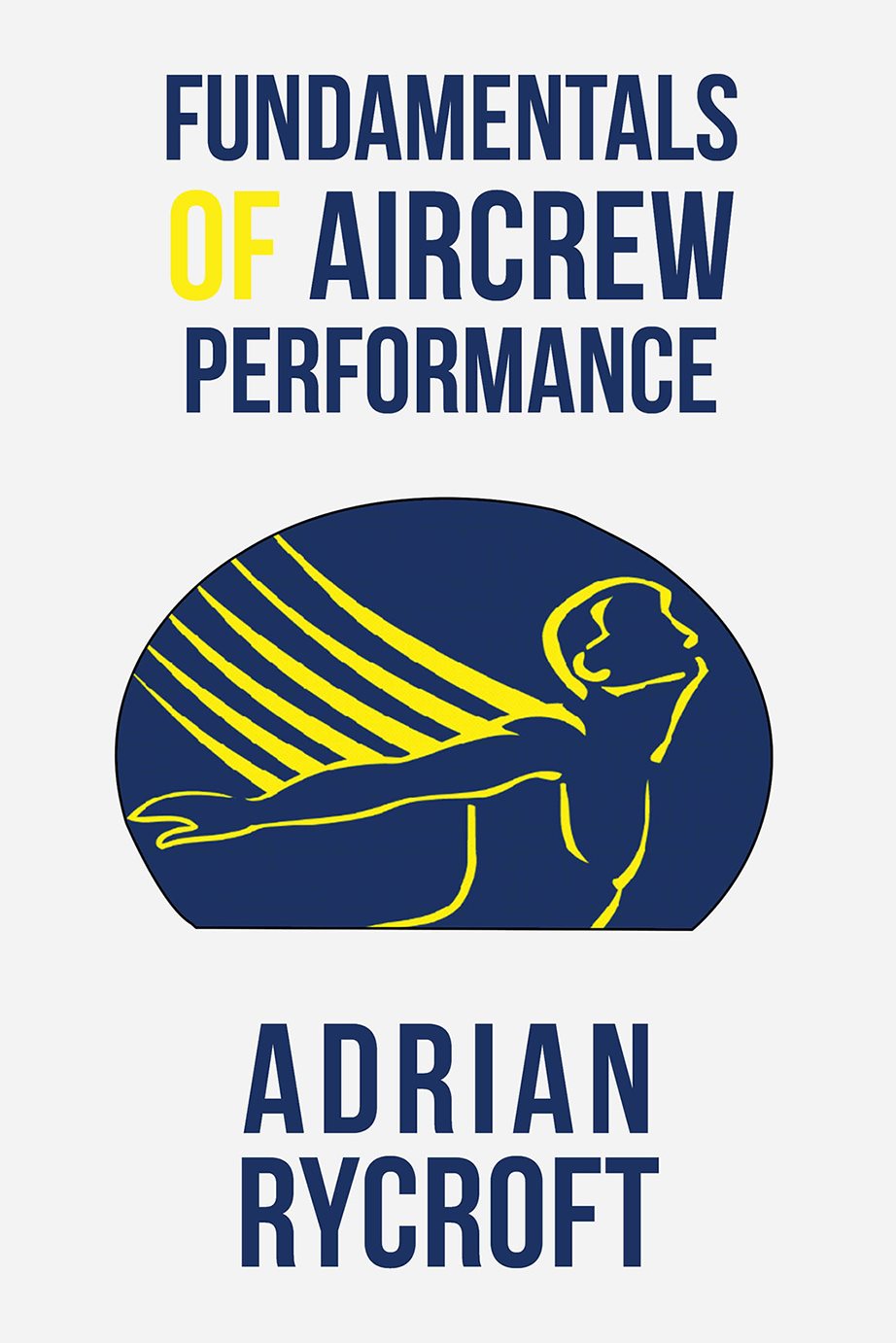Adrian was a professional military and civilian pilot who, after losing his medical clearance to fly after ejecting from a Tornado aircraft in 2003, retrained as a psychologist whilst remaining in the Royal Air Force. He has a degree in aeronautical engineering from Imperial College, a postgraduate certificate in psychology from Heriot-Watt University and is a qualified coach and coach supervisor with the Association of Professional Executive Coaches and Supervisors. He is married with two grown-up children and a Border Collie called Bracken.
Adrian Rycroft
Fundamentals of Aircrew Performance
Copyright Adrian Rycroft 2022
The right of Adrian Rycroft to be identified as author of this work has been asserted in accordance with section 77 and 78 of the Copyright, Designs and Patents Act 1988.
All rights reserved. No part of this publication may be reproduced, stored in a retrieval system, or transmitted in any form or by any means, electronic, mechanical, photocopying, recording, or otherwise, without the prior permission of the publishers.
Any person who commits any unauthorised act in relation to this publication may be liable to criminal prosecution and civil claims for damages.
A CIP catalogue record for this title is available from the British Library.
ISBN 9781398452749 (Paperback)
ISBN 9781398452756 (ePub e-book)
www.austinmacauley.com
First Published 2022
Austin Macauley Publishers Ltd
1 Canada Square
Canary Wharf
London E14 5AA
Acknowledgements
I would like to thank Wg Cdr (Retd) Ian Brayn-Smith as the instigator for the research into improving cognitive airmanship and allowing me a free rein in establishing the training courses which evolved from it. I would also like to thank Dr Danielle Bryant for her support in improving, delivering, and supervising the Aircrew Performance Coaching programme.
The involvement of a team from OPP Ltd. (now the Myers-Briggs Company) was invaluable in providing insights into individual personality and consequently, how a knowledge of ones personality could be used to improve performance.
Foreword
I first met the author in 1979 when we were both studying at Imperial College and members of the University of London Air Squadron. We progressed through the Royal Air Forces fast jet flying training system at a time when ones performance was primarily assessed as the product of ability and effort. Generally, one was judged as either having the ability and the motivation to succeed at all cost or not. Those that didnt exhibit the necessary qualities to the right level were select out in a fairly brutal and unforgiving manner. Should a student fail a sortie, they would be required to repeat in order to progress with their course-mates. This would add pressure to the remedial event which would further reduce the capacity of the troubled student and their performance would be far from their best. Noting that it was often a students life-long ambition to become aircrew in the RAF, it would take a very resilient individual to compartmentalise the stress/pressure of this process to perform to the required standard. For many, the eventual chop ride could almost become a self-fulfilling prophecy as the student in trouble entered the spiral of the doom being unable to deal with the emotional stress and achieve the required standard. It should be noted that many students had survived a 3+ journey through the training system only fail that the final hurdle I devastating experience for the student and an expensive trail for the RAF.
Often the day the student was chopped was a massive relief from the indescribable mental pressure of living the demise of their own schoolchild dream to become RAF aircrew. In the 1980-90s, pastoral care for the student was varied and really depended upon the personal traits of their flying instructor. Some instructors were outstanding and genuinely cared about their students performance akin to what might be described as good parenting skills. Others were less sympathetic to the emotional and physiological factors affected their students performance. This was very much the flying training system that I was part of both as a student and a first tour instructor on the Hawk.
After a number of tours on the frontline and in staff appointments, I returned to the flying training system in a leadership and management role. By this stage the author was part of the Central Flying School researching and implementing a programme to improve aircrew performance. With the support of a dedicated team, the author established a Human Factors Centre which was responsible for introducing a structured and comprehensive programme to address the challenge of improving instructor performance to increase the chances of students success. In addition, support was put in place for students to increase the probably of their successful transition through to a frontline cockpit. The student aircrew was beginning to be treated akin to a prized and highly valuable athlete and rightly so!
In this authoritative text, the author addresses the science behind improving aircrew performance. He presents a comprehensive analysis of cognitive processing within the aviation domain and offers insight into the potential improvements in aircrew performance should a structured programme be instigated to address the challenges faced by aircrew in high stress environments. I only wish that the author had written this text prior to the start of my interaction with the flying training system (both as a student and instructor).
Mark Green CBE
Air Vice Marshal (retd)
Preface
This book is written as I conclude my time as an instructor of Aircrew Performance and an Aircrew Performance Coach on 29 Sqn, Royal Air Force, the Typhoon Operational Conversion Unit. It provides an insight into the cognitive skills required for aircrew and the practical techniques required to improve, assess and teach them.
My involvement in this field started in 2006 after I lost my Fast-Jet medical category after ejecting from a Tornado F3 at Goose Bay in Canada. Initially, my task was to develop the RAFs understanding of Airmanship to produce a coherent framework for assessment and instruction, but this quickly expanded to include all aspects of improving aircrew performance. This resulted in me establishing the RAFs Human Factors (HF) Centre within the HQ of the Central Flying School at RAF Cranwell. Here I designed and, with the help of my excellent staff, ran the Human Performance for Aircrew Instructors Course, the Aircrew Performance Coach Qualification Course and, under contract to Inzpire Ltd., the HF and Airmanship Foundation Course.
The aim of these programs was to apply the latest developments in psychology ( learning, stress management, coaching, personality, etc .), neuroscience ( cognition, memory, data-processing, etc .), and linguistics ( cognitive behavioral therapy (CBT), neuro-linguistic programing (NLP), etc. ) in a practical way to improve aircrew performance. The RAF had achieved excellence in the instruction, assessment, and improvement of the more mechanical skills of flying and, with the introduction of aircraft that had access to dramatically increased amounts of data, wanted to achieve the same levels of performance in the cognitive airmanship sphere. Although the initial focus was driven by the introduction of modern, data-driven aircraft, it quickly became apparent that these new techniques, based on a better understanding of the role of aircrew, were applicable to all aircrew in all environments.


